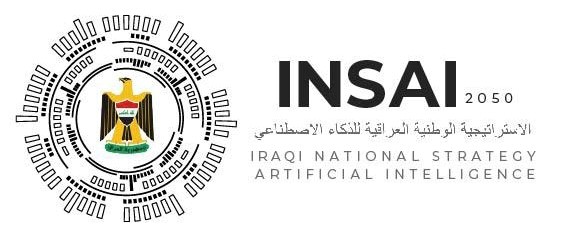Preparing the national policy for genetic fingerprinting
- the background of the project
- project objectives
- steps taken so far
- Components of the National Genetic Fingerprint Policy
- Expected future applications
Proposed recommendations
- Completing the preparation of the national policy in coordination with the Prime Minister’s Advisor for Artificial Intelligence and Scientific Affairs.
- Allocate a national budget to implement laboratory infrastructure and genetic software.
- Hold a national workshop to review the final draft of the policy with the participation of all parties.
- Starting a pilot project to implement the database in a Brazilian security institution.

First: Project background
As part of the Iraqi government's strategic directions towards enhancing biosecurity, supporting scientific research, and developing technical applications in the fields of justice, health, and agriculture, a national initiative was launched aimed at:
Preparing an integrated national policy for genetic fingerprinting, concerned with documenting the genetic components of living organisms using modern techniques in DNA sequencing and preserving them in an organized sovereign database
Second: Project objectives
1. Establish a national database of the genetic fingerprint of human and biological organisms of interest.
2. Leveraging Next Generation DNA sequencing technology
Sequencing - NGS to identify genetic sequences with high accuracy.
3. Analyze data genetically and statistically using specialized software.
4. Promoting scientific research in universities and research centers.
5. Supporting applications in the fields of forensic medicine, precision medicine, agriculture, and biosecurity.
6. Protecting the genetic security and digital sovereignty of Iraqi genetic data.
Third: Steps taken so far
1. Multiple planning meetings
A series of coordination meetings were held in the presence of representatives of:
* Security authorities.
* Ministries of Higher Education, Health, Agriculture, and Interior.
* Advanced research centers in Iraqi universities.
* Technical bodies specialized in data analysis and storage.
2. Review of the political and regulatory framework
* Successful international experiences such as: the United Kingdom, Singapore, India in managing genetic fingerprint databases were reviewed.
* Determine the principles governing national policy, such as:
* Genetic data security.
* Protecting genetic privacy.
* Regulate access and use.
* Ensure ethical use of genetic data
Fourth: Components of the national genetic fingerprinting policy
1. Technical infrastructure
* Equipping advanced laboratories with NGS technologies
*Use of genetic database management systems.
* Linking data to the National Center for Genetic Information.
2.Legal and institutional framework
* Preparing a draft law to protect genetic data.
* Organizing cooperation between judicial, medical and research authorities.
* Define data sharing controls locally and internationally.
3. Cooperation mechanisms between parties
* Joint security, medical, and academic working groups.
* Standardized protocols for data collection and analysis.
* Central government oversight to ensure consistency and implementation
Fifth: Future applications
1.Forensic Medicine: Robbery Resolution and High-Accuracy Identification.
2.Public health: early detection of genetic diseases, support for precision medicine.
3.Agriculture: Protecting local breeds and improving them genetically.
4.Biosecurity: Protecting genetic resources from external exploitation.
Conclusion
Preparing a national genetic fingerprint policy represents an advanced scientific and strategic step that contributes to securing Iraq's genetic sovereignty and enhances the state's capacity in the medical, security, and research fields, within legal and ethical frameworks consistent with international standards.

